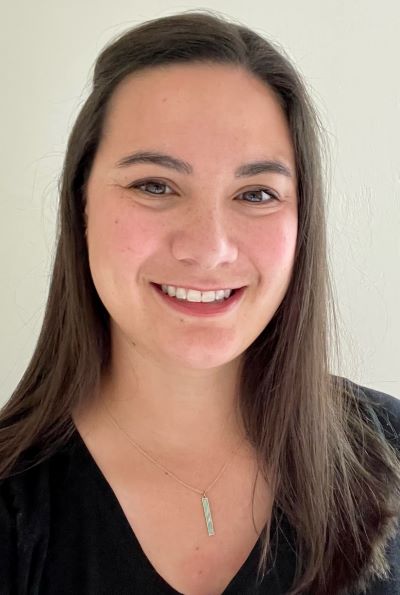Page 10 • (460 results in 0.079 seconds)
-
. Students should register for the lab corresponding to their lecture section. This section is intended for sociology, criminal justice, and social work majors. Prerequisite: SOCI 101 or equivalent. (4) STAT 242 : Introduction to Mathematical Statistics - QR Data description, probability, discrete and continuous random variables, expectation, special distributions, statements of law of large numbers and central limit theorem, sampling distributions, theory of point estimators, confidence intervals
-
from a systemic framework. a. Receive an “Admittance” outcome for the “Entrance into Clinical Practica” interview process which includes an evaluation of systemic knowledge from MFTH 503. Benchmark: 80% b. Pass the Oral Final Exam in MFTH 507. Benchmark: 80% c. Complete MFTH practica and theory course sequence with passing grades. Benchmark: 80%2A. Students and graduates will demonstrate an understanding of contextual issues and approach treatment with sensitivity towards race and ethnicity, gender
-

, he has served on the faculty of Sam Houston State University and as a visiting faculty lecturer at Princeton University, teaching courses in music history, music appreciation, world music cultures, music performance, and interdisciplinary arts courses. He also spent six years as the Upper School Music Director for The Benjamin School (Palm Beach Gardens, FL), where he taught choir, band, orchestra, piano, and music theory. He continues sharing his passion for music by providing performance and
-

administration. As an educator, he has served on the faculty of Sam Houston State University and as a visiting faculty lecturer at Princeton University, teaching courses in music history, music appreciation, world music cultures, music performance, and interdisciplinary arts courses. He also spent six years as the Upper School Music Director for The Benjamin School (Palm Beach Gardens, FL), where he taught choir, band, orchestra, piano, and music theory. He continues sharing his passion for music by
-

Kristina Kenning Clinical Instructor of Nursing Email: kristina.kenning@plu.edu Professional Biography Education Masters, Nursing, University of St. Mary's , 2019 Bachelor, Nursing, Creighton University, 2011 Bachelors , Biology, Creighton University, 2010 Areas of Emphasis or Expertise Teaching and Learning Theory Critical Thinking Development Pathophysiology Currently Teaching: Chronic Conditions, Clinical Lead Biography I am originally from Missoula Montana and have been a nurse for over 12
Contact Information -
: Music Theory & Analysis IA (2) MUSI 135: Music Theory & Analysis IB (2) MUSI 136: Music Theory & Analysis II (3) MUSI 151: Keyboard Musicianship I (1) and/or MUSI 152: Keyboard Musicianship II (1) or MUSI 251: Keyboard Musicianship III (1) or successful completion of the Keyboarding Proficiency Assessment All first-year students should complete the Theory online placement test before class registration. Students will be placed in the appropriate level Music Theory & Analysis course based on the test
-
investigation—including research development, testing, and evaluation—involving a living individual about whom you obtain: data through intervention or interaction (including surveys and interviews), and/or identifiable private information in a form that can be linked with that individual. designed to develop or contribute to “generalizable knowledge.” Findings disseminated with the intent to influence behavior, practice, theory, future research designs, etc. are contributing to generalizable knowledge.When
-
related tool or strategy do you use that other PLU faculty might like to try in their courses?“I try to incorporate the use of technology whenever possible –to help students see the connection between theory and personal application of course content. The students we have now have grown up with technology; they not only understand, but live through technology and expect instant access to information; which makes connecting theory to real life application and integration even more imperative.”What are
-
; however, there are rewards from such substantial mathematical study: a strong employment outlook, high pay, and an opportunity to work in an intellectually stimulating and diverse environment. Although statisticians are mathematical specialists, many work in companies, organizations and governmental agencies where the applications, rather than theory, are the primary focus. Statistics is one of the top professions for career growth potential and opportunity. Some of the possibilities for careers in
-

Tom Edgar Professor of Mathematics he/him/his Phone: 253-535-7238 Email: edgartj@plu.edu Office Location: Morken Center for Learning & Technology - 256 Curriculum Vitae: View my CV Professional Biography Additional Titles/Roles Editor of Math Horizons magazine Education Ph.D., Mathematics, University of Notre Dame, 2009 M.S., Mathematics, Colorado State University, 2004 B.S., Mathematics, Dickinson College, 2002 Areas of Emphasis or Expertise Abstract Algebra (Group Theory) Algebraic
Do you have any feedback for us? If so, feel free to use our Feedback Form.


